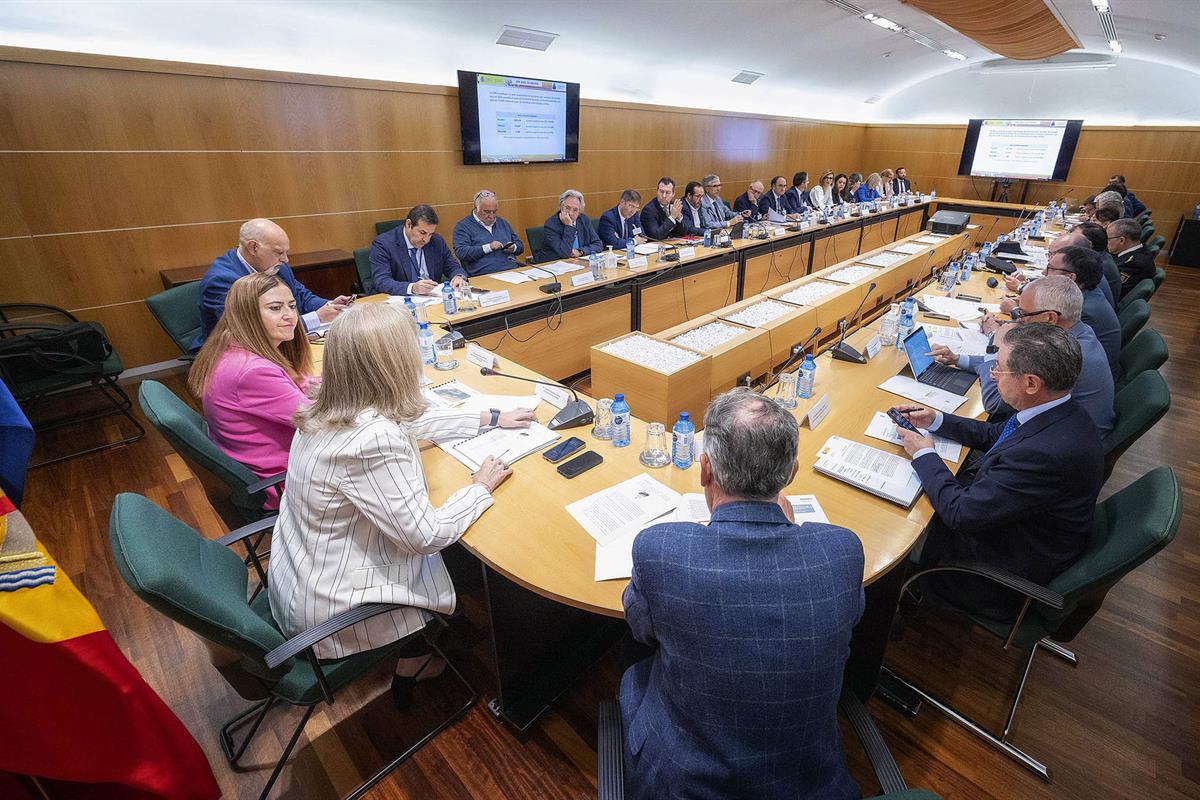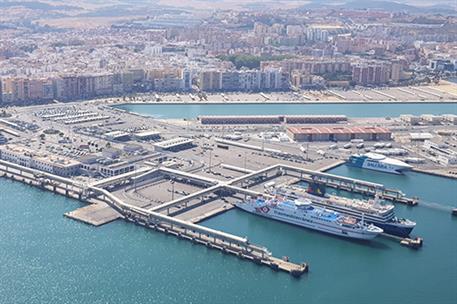 Meeting of the State Coordination and Management Committee of the Operation Crossing the Strait 2024
Meeting of the State Coordination and Management Committee of the Operation Crossing the Strait 2024
The Undersecretary of the Ministry of the Interior, Susana Crisóstomo, accompanied by the Director General of Civil Protection and Emergencies, Virginia Barcones, chaired the meeting of the State Coordination and Management Committee (CECOD) of the Operation Crossing the Strait (OPE) 2024, which will run from 13 June to 15 September.
The meeting culminated in the approval of the Special Plan for the OPE, which will facilitate a "swift and effective" response to the demand for services and infrastructures that Operation Crossing the Strait, "the largest movement of people and vehicles by sea in Europe and, possibly, the world" entails, stressed the undersecretary of the Ministry of the Interior during her speech.
Operation Crossing the Strait of Gibraltar has been in place since 1986 and manages the outward and return transit of North Africans travelling from several European countries to North Africa during the summer season.
"It is an annual challenge of preparedness, prevention and response capacity to make possible a massive movement of people and vehicles between two continents, both by road and by sea and in a short period of time," added Crisóstomo.
In 2023, a total of 3,219,618 passengers and 775,410 vehicles crossed the Strait smoothly. The trend in recent years points to a further increase in the number of vehicles, which in 2024 could be more than 6 percent higher than the previous year, and a more moderate increase in the number of passengers, which could be around 4 percent this summer.
The planning phase for OPE 2024 started in the first half of January. Following contacts with all the participating organisations, the CECOD was held this Thursday to finalise the details of the operation, a process that will continue on 20 May, when the Joint Spanish-Moroccan Commission will meet in Tangiers (Morocco), comprising Spanish and Moroccan officials from the institutions and organisations involved in the operational deployment.
Bringing forward the start of the operation
The start of the OPE has been brought forward this year to 13 June, two days earlier than usual, in anticipation of the increase in traffic movements before the Feast of the Lamb, which is celebrated on 17 June in Morocco. The operation will end on 15 September and will be divided, as in previous years, into an Departure Phase and a Return Phase.
The Special Plan for the OPE 2024 is a wide-ranging operation that includes a Fleet Plan, the central axis of the operation, which will establish the number of vessels and their capacity, as well as the number of trips necessary to guarantee the smooth passage of vehicles and passengers. Provincial coordination plans and plans for each of the nine ports involved are also added: Algeciras and Tarifa, in Cadiz; Almeria, Malaga, Motril (Granada), Alicante, Valencia, Ceuta and Melilla; as well as specific road safety plans.
This year, the number of staff from the Directorate General of Civil Protection and Emergencies dedicated to the OPE is up by 5 percent and the presence of personnel has been increased by 18 percent, especially in the case of the Spanish Red Cross volunteers, who will remain on the ground twenty days longer than in previous years and will reinforce the assistance in the autonomous city of Ceuta.
The Special Plan also establishes some critical days, those with the greatest influx of vehicles and passengers, which will be concentrated between 14 and 16 June; between 1 and 5 August; and between 30 August and 1 September.
The CECOD held this Friday in Madrid was attended, on behalf of the Ministry of the Interior, by representatives of the Secretary of State for Security, the General Directorates of Civil Protection and Emergencies and Traffic, as well as the National Police and the Civil Guard.
Also participating were officials from the Department of National Security of the Presidency of the Government; from the Ministries of Foreign Affairs, European Union and Cooperation, Transport and Sustainable Mobility, Territorial Policy, Ecological Transition and the Demographic Challenge and Health; as well as from the Government delegations in Andalusia, Valencia, Ceuta and Melilla, and from the Government Sub-delegation in Cadiz.
Non official translation





